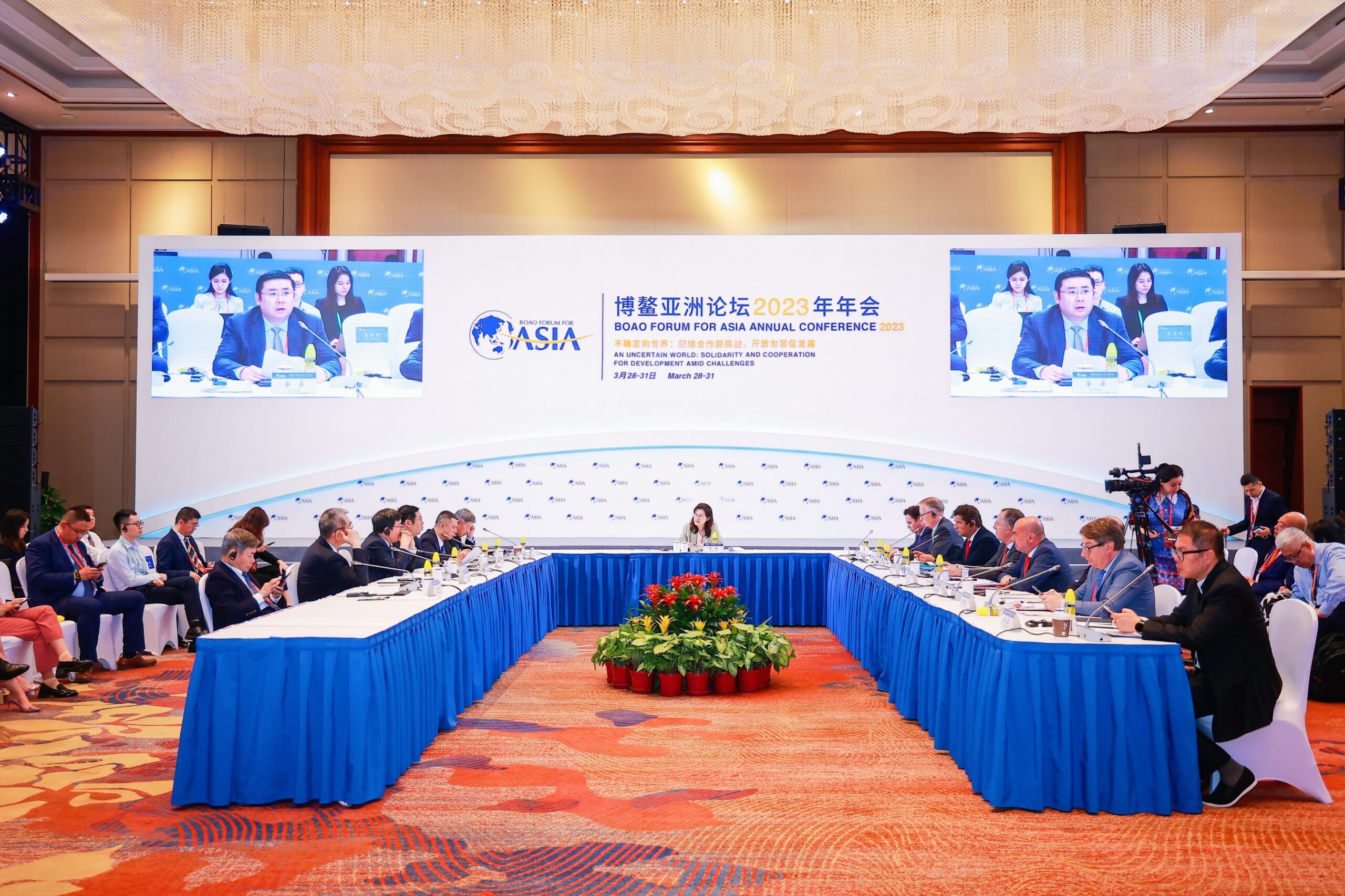From 28 to 31 March 2023, The Bridge Tank, represented by its president Joël Ruet, took part in the BOAO Forum for Asia 2023, in Boao, Hainan, China. The Bridge Tank has taken part in the annual meeting of the “Chinese Davos” as a partner of the event since 2018. This year’s BOAO Forum was placed under the theme “An Uncertain World: Solidarity and Cooperation for Development amid Challenges.”
The Forum saw Joël Ruet take part in two sessions dedicated to the China-EU dialogue, with a closed-door CEO roundtable, and a panel session on global energy supply shocks, both concretely addressing energy transitions. The forum’s plenary session provided contributions from Chinese Premier Li Qiang, former UN Secretary General and now chair of the forum Ban Ki Moon, as well as Lee Hsien Loong, Prime Minister of Singapore, and Pedro Sanchez, Prime Minister of Spain, addressing future relations between China and the EU and the potential for partnerships.
China-EU CEO closed-door Dialogue
The roundtable which Joël Ruet took part in addressed questions and opportunities of cooperation and competition in a context of systemic rivalry. The session allowed for interaction between industry captains from France, Italy, Finland, Hungary, & Germany and their Chinese counterparts. These notably included:
- Justin Yifu Lin, Dean of Institute of New Structural Economics, Peking University & former Chief Economist and former Senior Vice President of the World Bank
- Li Zixue, Chairman and Executive Director, ZTE Corp
- Zhang Yue, Chairman, BROAD Group
- Li Yong, Chairman, Chinayong Investment Group
- Joël RUET, Chairman, The Bridge Tank & Associate Researcher, Tech for Change Chair Ecole Polytechnique
- Jorge Toledo, Ambassador of the European Union to China
- Denis Depoux, Global Managing Director, Roland Berger
- Norbert Csizmadia, President, John von Neumann University Foundation
- Gianni Di Giovanni, Chairman, ENI China B.V. & Executive Vice President, ENI
- Fabrizio Ferri, Head of Asia Pacific Region, Fincantieri
Joël Ruet’s participation to this roundtable allowed him to convey the current situation and opportunities in matters of energy transitions, particularly around nuclear power and hydrogen. Reflecting on current trends, Mr Ruet noted that in 2022, the EU’s transition found a winning long term hedging strategy based on geographically hedged gas instead of oil, with a 2030 horizon hedging against all fossil fuels.
On matters of climate finance, Joël Ruet argued that financial mechanisms had to go beyond carbon pricing and beyond mitigation finance. Instead, adaptation must be financed through cobenefits on agriculture, agro-forestry, CO2 fixation in soils and water preservation. This requires a joint effort to build a finance and banking derisking industry both at the level of public and commercial banks. China and the EU have a common interest in not only sharing ideas and models but also in building joint programs with least developed countries, Mr Ruet argued.
In a subsequent interview for China Business News, Joël Ruet stressed the importance of these types of roundtables, as “business decisions are based on this kind of relationship and understanding between people.”
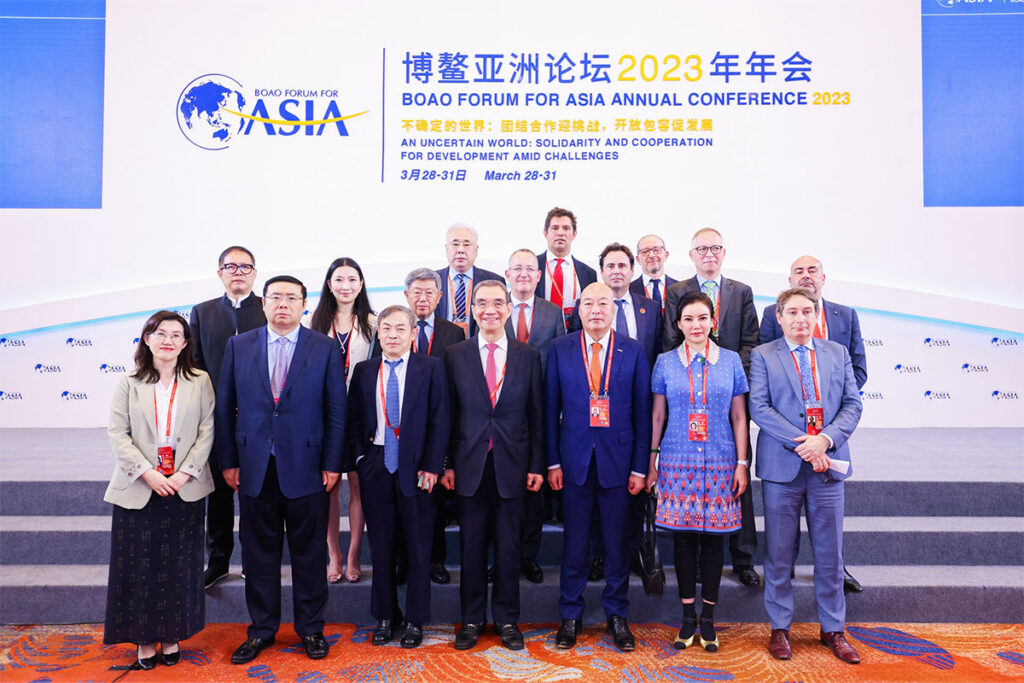
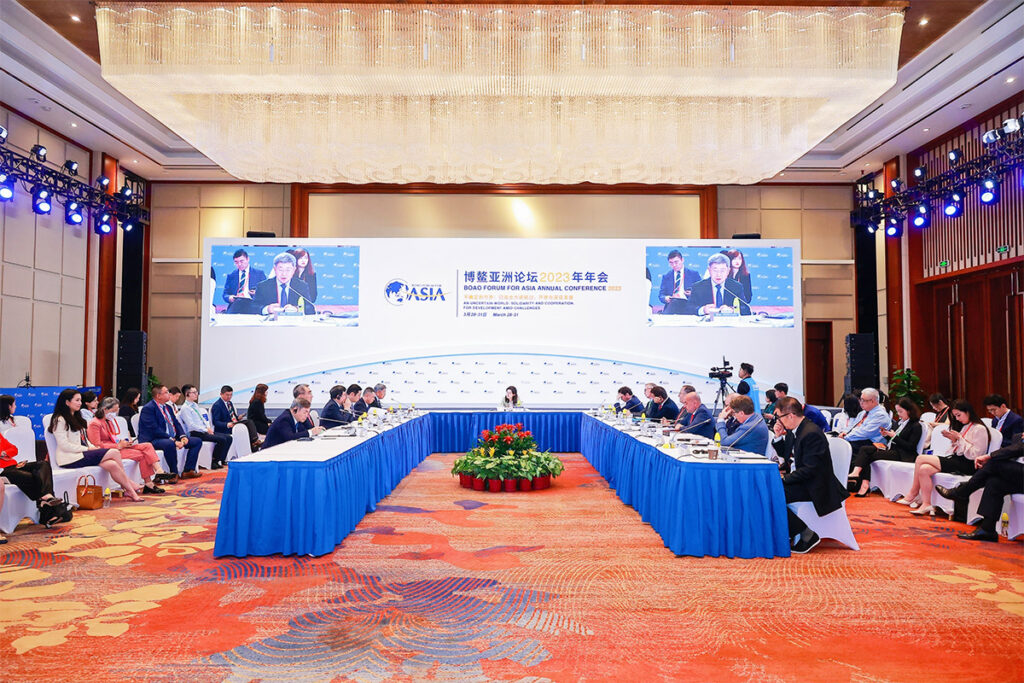
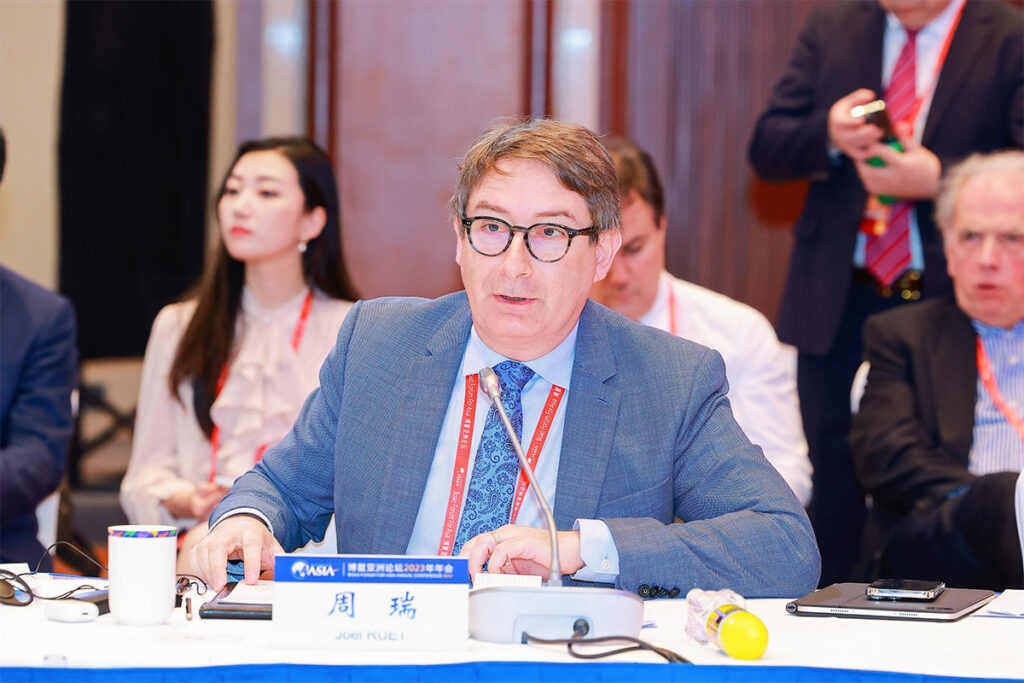
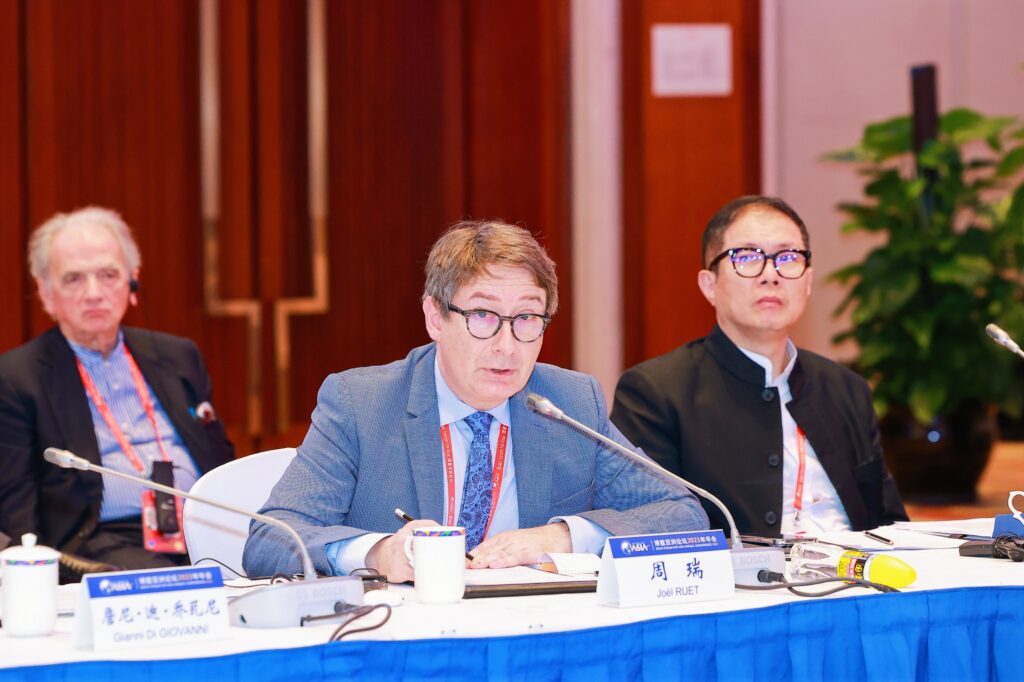
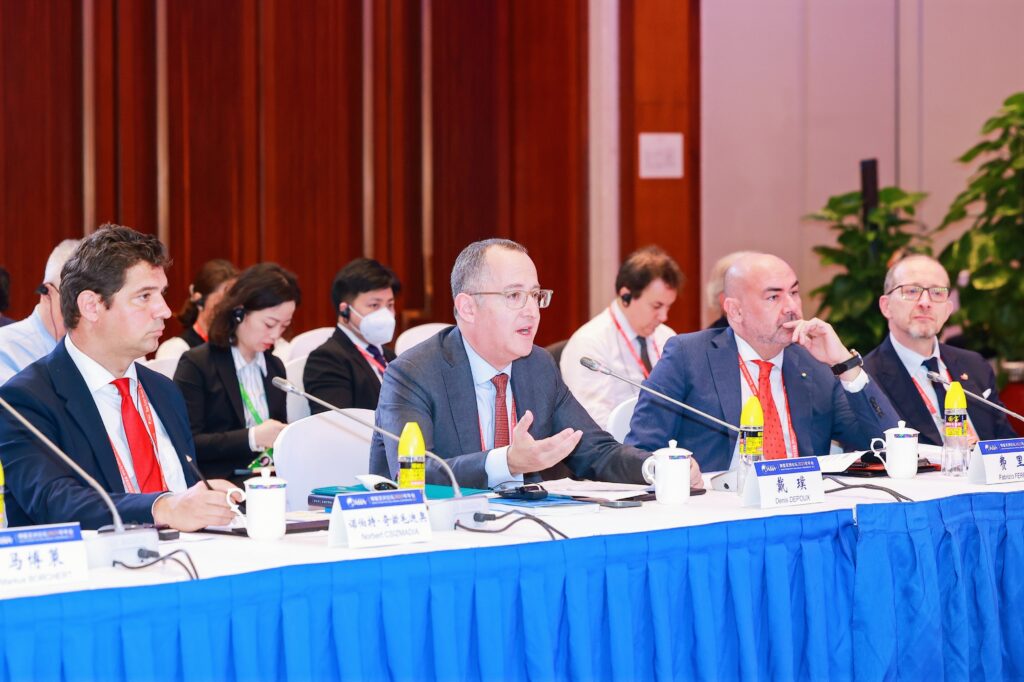
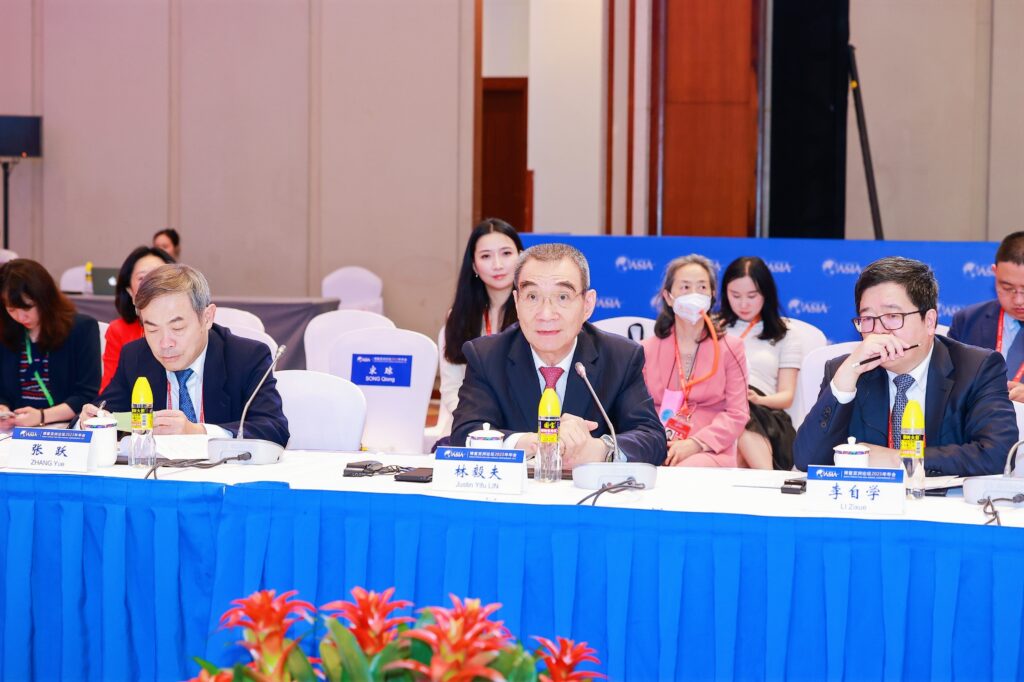
Global Energy Supply Shock Roundtable
On March 30th, Joël Ruet sat down with senior Chinese and international executives and experts for a roundtable discussion on the current energy supply and demand structure. The discussion touched on how Russia’s invasion of Ukraine reshaped Europe’s energy supply landscape and how the global energy structure has evolved since, taking into account sanctions imposed on Russia and production restriction policies adopted by oil producing countries in the Middle East. The session also tackled how to maintain the stability of the international energy market and what the implications of these changes are on energy transitions efforts around the world.
The session moderated by ZHONG Shi, CGTN Anchor, was joined by :
- Denis DEPOUX, Global Managing Director, Roland Berger
- Gianni Di GIOVANNI, Chairman, ENI China B.V. & Executive Vice President, ENI
- MENG Zhenping, Chairman, China Southern Power Grid
- Joël RUET, Chairman, The Bridge Tank & Associate Researcher, Tech for Change Chair Ecole Polytechnique
- Ernie THRASHER, Director, Xcoal Energy & Resources
- ZHONG Baoshen, Chairman, Longi
According to Joël Ruet, the energy crisis is an opportunity to better understand the strengths and weaknesses of current energy structures, what is resilient, and what is most affected by these shocks. “We should turn the crisis into an opportunity,” Mr Ruet stated, adding that “in the energy transition, we must be inclusive and united.” What is stirking in the EU’s response over the last year is that it was not just a short term shock answer but that it paves the way to structural acceleration in energy transition, notably on pure renewables or gas. The fact that various countries have various energy strategies on nuclear as renewable or hydrogen uses or mobility engines hasn’t prevented quantum jumps in taxonomy and serves a positive complement thus hedging in European energy transitions.
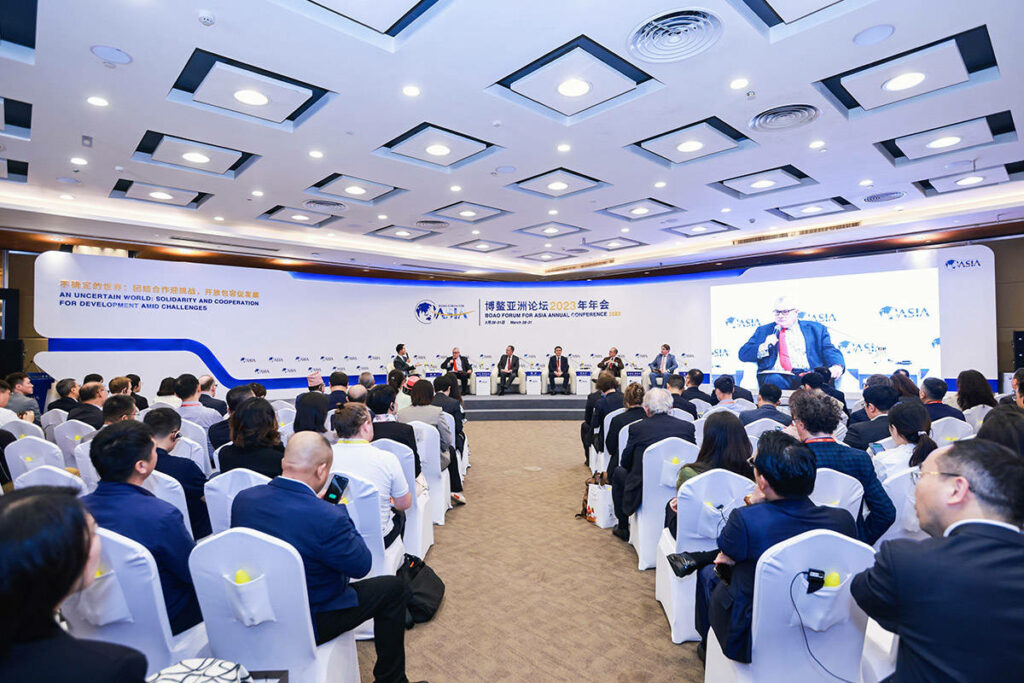
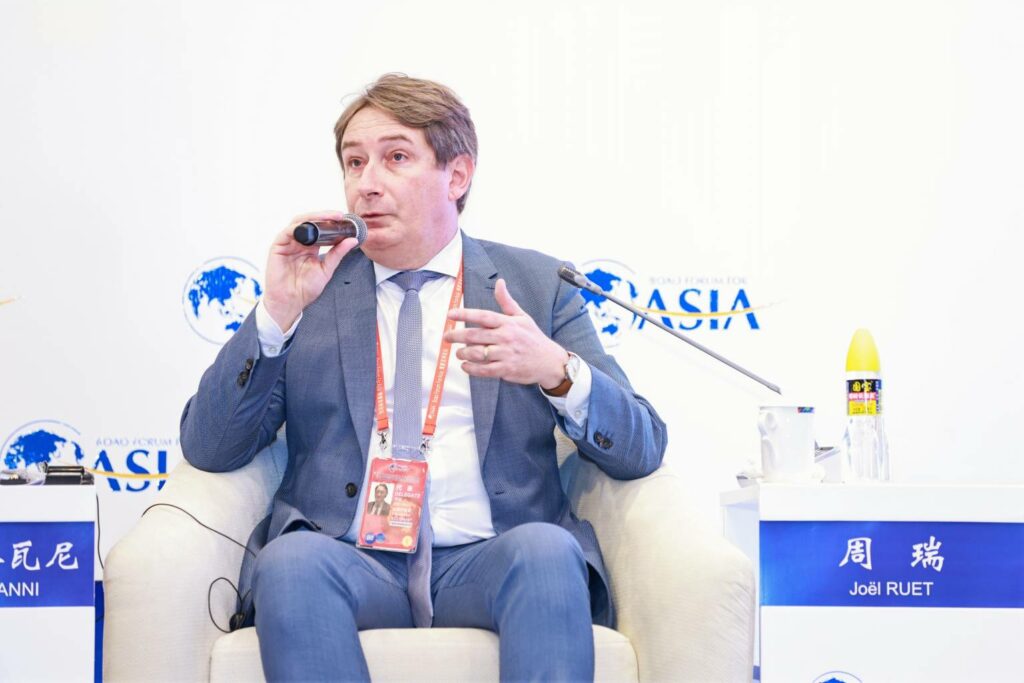
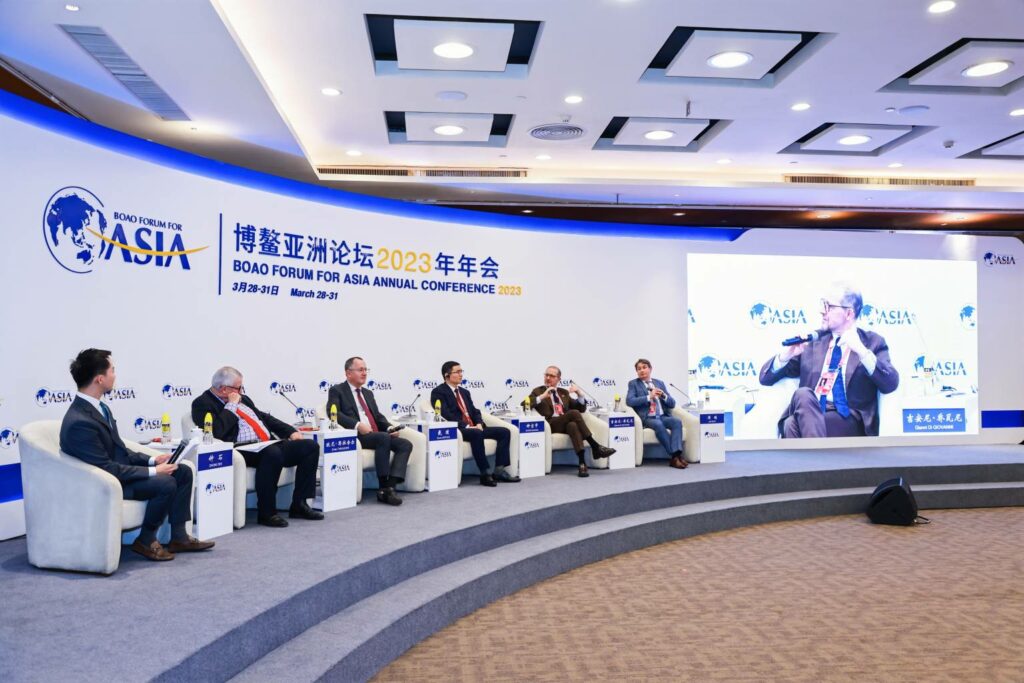
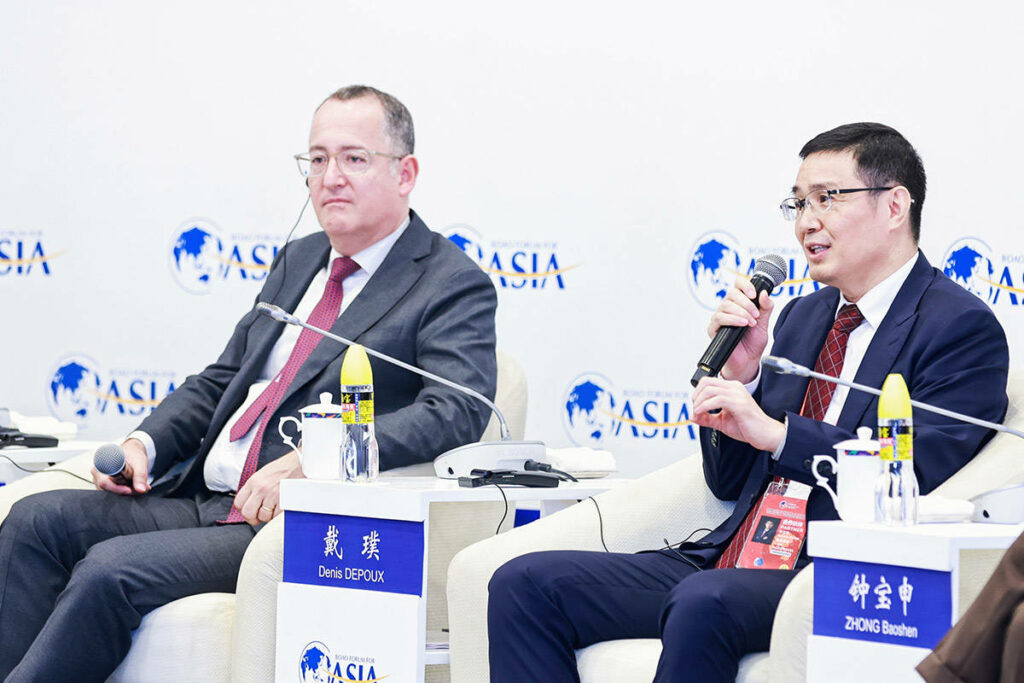
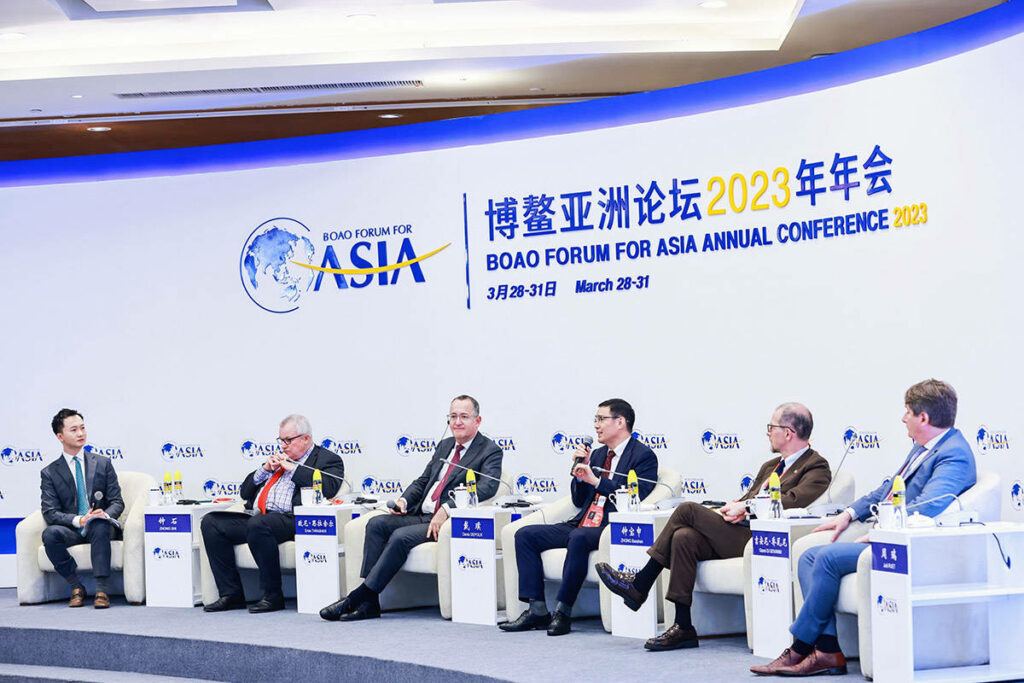
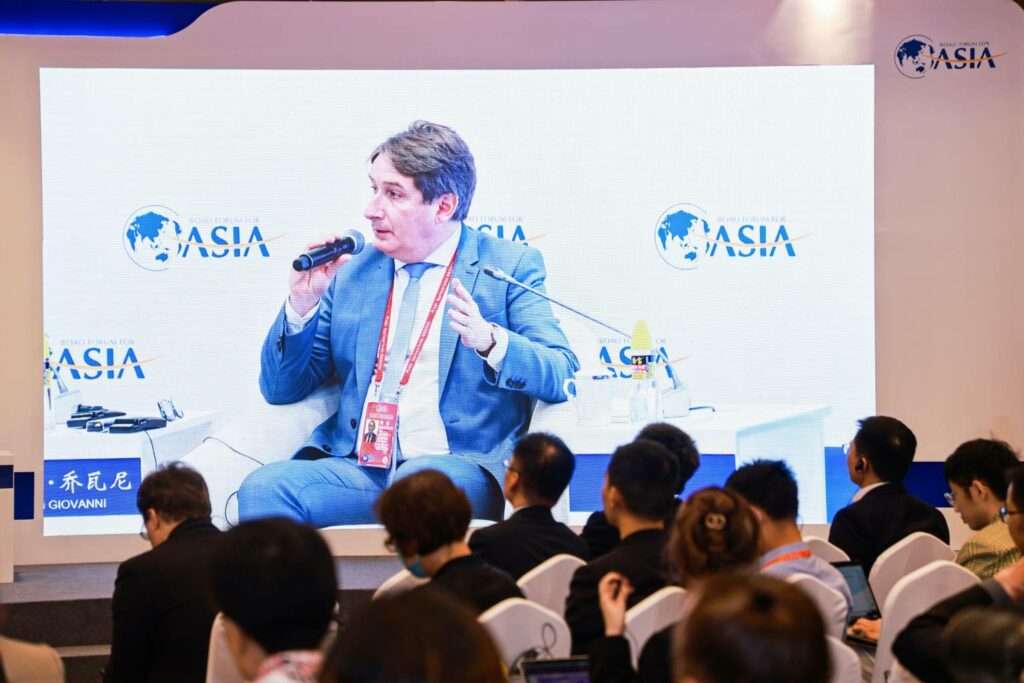
Takeaways from the plenary session
BOAO Forum’s plenary session saw leaders from all around the world taking the stage to discuss current affairs. After stressing that “Russian agression has undermined the world order,” Singapore Prime Minister Lee Hsien Loong insisted that beyond building strong relations with China, Asian countries needed to mesh with one another, highlighting ASEAN’s centrality. Praising the RCEP and trans pacific dynamics, PM Lee called for Asia to always remain an open region building partnerships.
Pedro Sanchez, Prime Minister of Spain, stated that in its upcoming capacity assuming the presidency of the EU, Spain wants to contribute to peace and trust rebuilding. The country wants to focus on having a renewed approach to globalization, one mindful of its environmental footprint and stability, moving beyond sole cost preoccupations. The EU is therefore building a new green and digital industry and will defend its values and interests. China and the EU, though competitors, can also remain partners as far as the sovereignty of countries is respected and a level playing field on competition is upheld. According to PM Sanchez, China and the EU must remain partners economically but also and most importantly work together on reaching the objectives set in the Paris agreement, the SDGs, and providing finance for development and debt risks for developing countries.
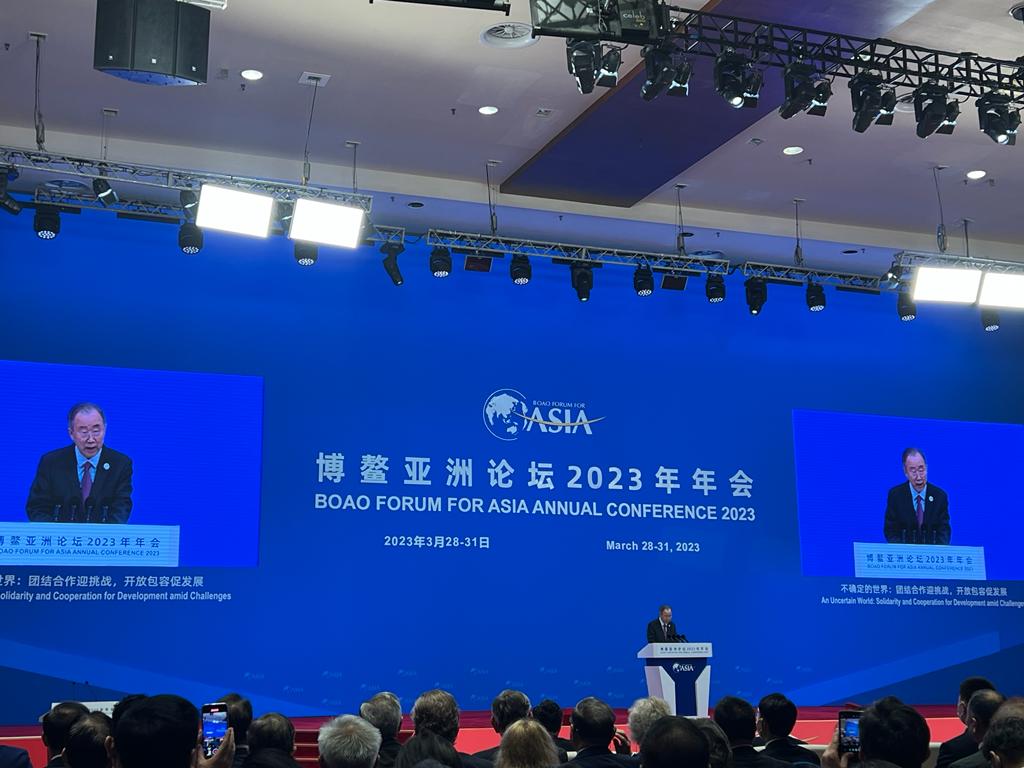
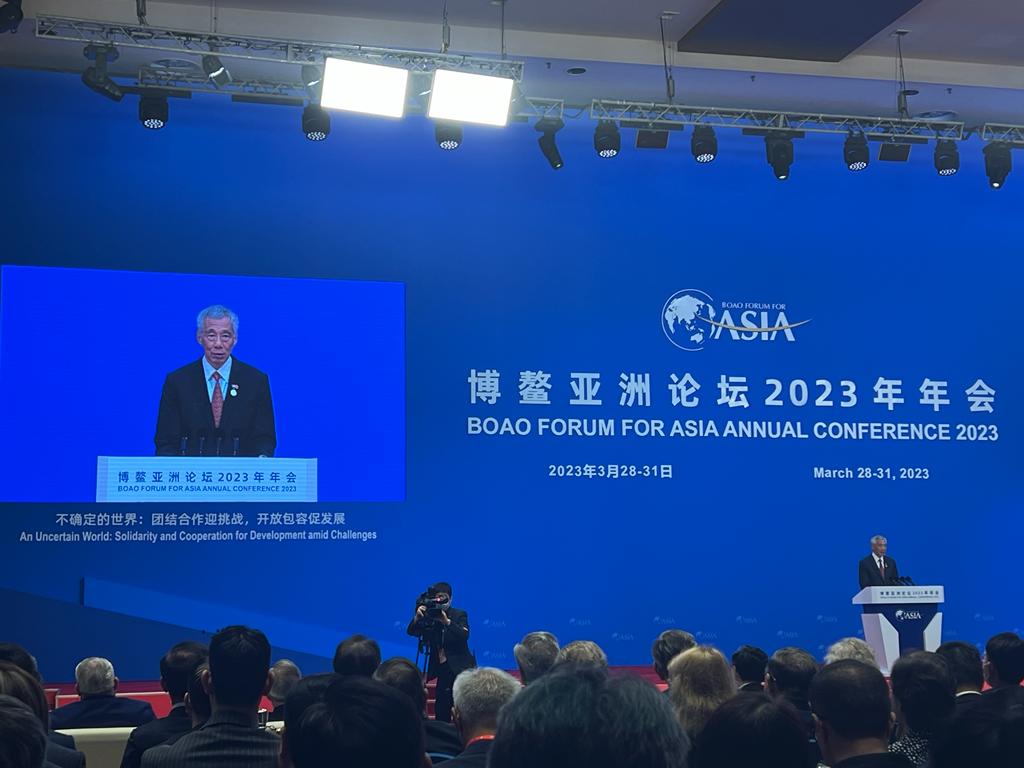
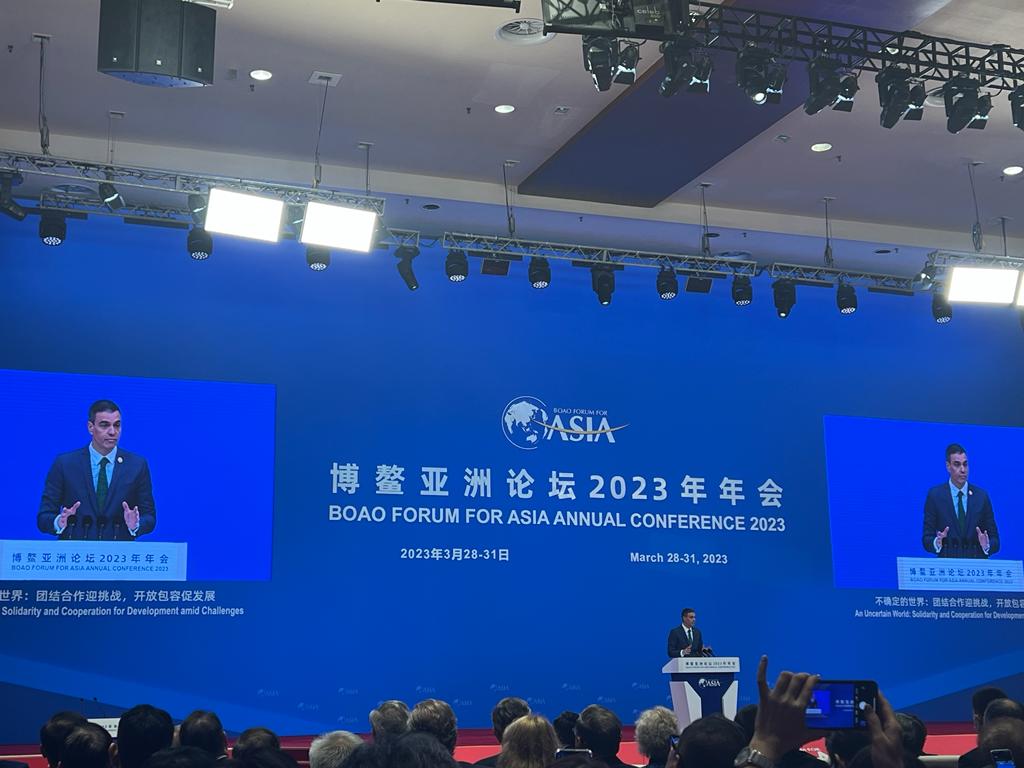
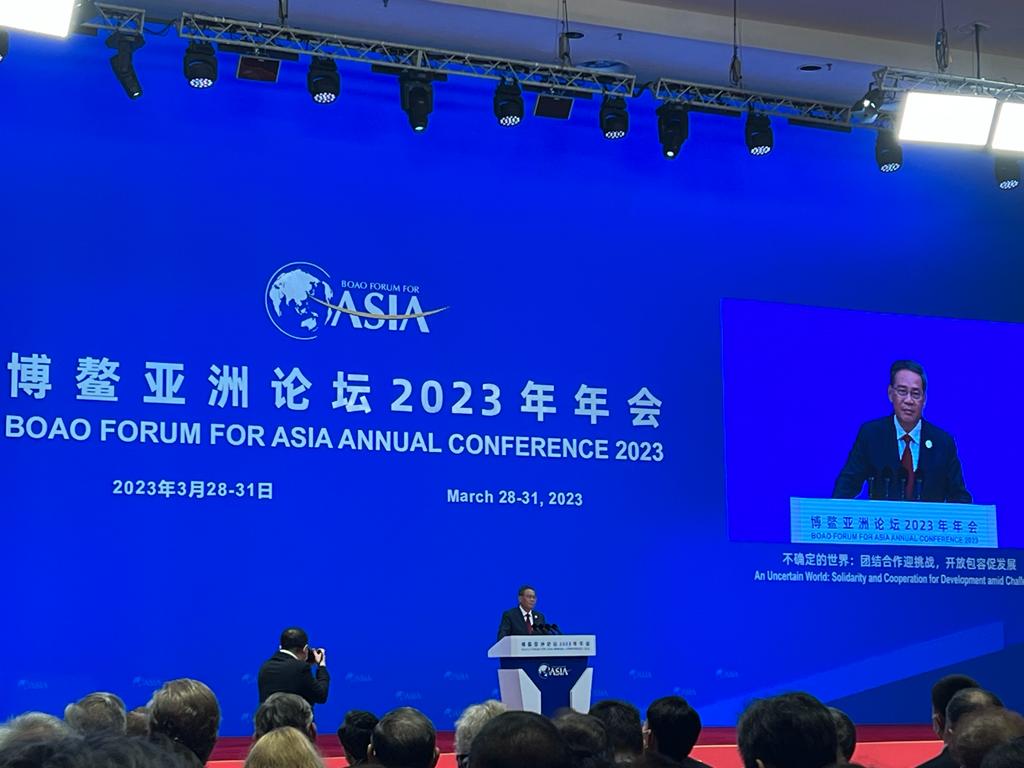
Joel Ruet also attended Chinese Premier Li Qiang’s address to BOAO forum delegates. In his speech, Premier Li stated that “without peace, Asia won’t have a bright future,” before adding that “the many issues facing humanity must be addressed through consensus.” To do so, Li Qiang emphasized the role of BRICS countries in enforcing a multilateral rule of law, qualifying as “more just and equitable” than the existing UN system.
Li Qiang stated that “in an uncertain world, China’s way to prosperity is an anchor of certainty,” stressing the importance of China’s growth for developing countries in general and for Asia and the global economy. China’s path forward will “continue the effort of deepening the demand while structuring the supply side in a way that is favourable to foreign investment.”
It is however to be recalled that investments reached a low in 2022 due to China’s zero covid policy, which will have an impact on economic results in the coming two years and weakened foreign confidence in the Chinese market. This short term cycle will have to be absorbed, with medium term prospect looking more encouraging and serving as a transition while the demographic window of opportunity is closing.
Watch Joel Ruet’s analysis of Chinese Premier Li Qiang’s speech for CGTN:

